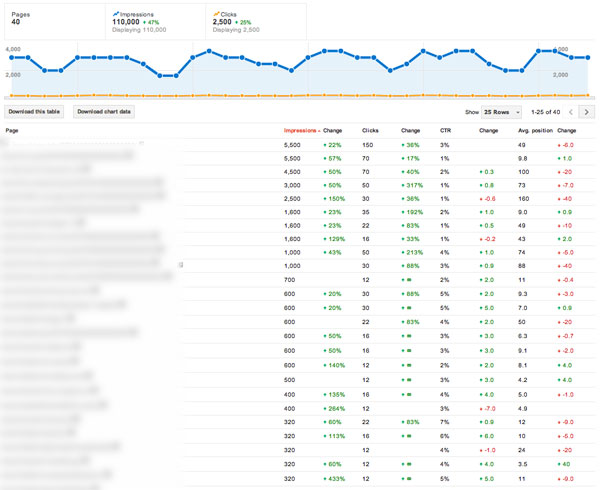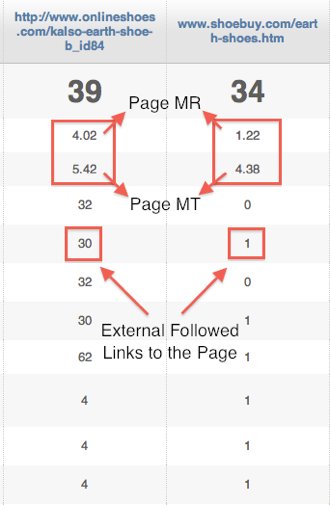What SEO trends are important to watch in 2012 for enterprise-level SEO? Many colleagues, clients, and prospects are keenly interested in the answer to this question.
Here are what I think will be four enterprise SEO trends to watch in 2012.
1. Further Corporatization of SEO in the Enterprise
The trend over the last several years has increasingly shown SEO teams “go within” at large companies.
For enterprise companies to realize exceptional results in SEO, they almost always require a dedicated internal SEO team. That’s the case today primarily because incremental gains are harder to achieve, as SEO is becoming more complex, harder (through obfuscation of data, such as Google’s “not defined” segment), and more competitive. Organic results, too, are shrinking and Google’s SERP and paid listings are continually evolving to blend in more tightly with the organic results.
Where does this lead us in 2012? Well, what we continue to see is strong demand for enterprise companies to lean on agencies for SEO work.
As SEO gets investment and resource demands within corporations continually rise, the need for outside support also rises. We see this most strikingly in the need for companies to secure content and off-page support.
Link development, social media, and content strategies will continue to be the primary need of the enterprise in 2012. With this trend comes the solidification of enterprise-level SEO analytics tools for in-house teams (and agencies for that matter). SearchLight, Brightedge, SEO Clarity, Matrix, Searchmetrics, and other toolsets are becoming essential complements to analytics, log files, crawling tools, and Google’s and Bing’s own excellent webmaster consoles.

Every SEO team needs a precision competitive analysis tool.
2. Rich Snippets Proliferate (and So Does Spam)
With one small recent change, Google has made it very easy to get your author photo in search results. 2012 will be the year this absolutely takes off. In fact, it will become a competitive disadvantage to publish without author information accompanying the Google result.
And it’s not going to be confined to authors, either. Rel author is certainly the most interesting recent microformat that Google has introduced, but there are many others. We’ve seen the way rich snippets increase clicks in search results by providing more information and better “pop” on the SERP.
Google’s RV Guha, a rich snippets engineer speaking at SMX East recently, was quoted as saying that “…it seemed that giving the user a better idea of what to expect on the page increases the click-through rate on the search results. So if the webmasters do this, it’s really good for them. They get more traffic. It’s good for users because they have a better idea of what to expect on the page. And, overall, it’s good for the web.”
In our testing, rich snippets can contribute to a staggering 52 percent lift in clicks, with spillover effects in increased impressions. And we’ve seen it even higher, although nowhere near the increases reported elsewhere, (which I have no reason not to believe).

Rich snippets positively influence CTR in organic results.
With great power comes great responsibility. Spammers are already jumping all over this one, so I imagine there will be tighter controls coming out soon.
3. It’s All About Social
No discussion of social in 2012 will be complete without Google+. You need a strategy there. Google is forcing that need upon you! And while it appears the Google+ dial has been turned down slightly in SERPs over the last few weeks, there’s no reason to think it’s going away.
There’s a troubling subcurrent to this whole polemic. When Google announced that search queries for logged-in users would not be passed to analytics (but would be passed to AdWords advertisers), it assured the web community that only a small percentage of queries would be affected. However, as Google+ adoption increases, and more users with accounts perform searches while logged in, that number will continue to rise. Could there be a time when 50 percent or more of search queries are “not provided”? Absolutely.
While changes like this absolutely make SEO more difficult, they also push the door ever slightly wider to new competitors. Look for Bing to continue to creep upwards in market share, although it won’t be through the partnership with Yahoo. If anything, all that partnership has done is marginalize Yahoo search. Bing will have to grab market share on the merits of its search experience, and even more importantly, through marketing.
Since you can’t fight the importance of Google+ to SEO, you might as well embrace it. The good news is there are already cool things you can do to integrate Google+ with your search campaigns, such as implementing “social extensions” to connect your AdWords accounts with a Google+ brand page.
SEOs without a Google+ strategy will be left behind. Get after it.
4. Domain Authority: Still the Trump Card
As much as social media is changing the SEO game (remember when Duane Forrester of Bing told us social signals matter more than links?), good old classic domain authority is still the heavyweight in the room. And it will be for some time, at least with Google.

Guess which one ranks higher?
Remember: Google won’t blend Twitter or Facebook data into its search results. Not until it gets significant access to the data, on terms that “won’t change,” according to Amit Singhal. This means it’s all about Google+, at least for now. Even if users don’t necessarily want it (they’ve crested 90 million users, but penetration among the masses is nowhere near where the two other social sites are), Google’s going to push its social network. And it’s got a long way to go.
I’m sure Google is already amassing valuable data through Google+, but it’s for a very small sample of users (relative to the web). Therefore, it’s unlikely that signals from the social network will have a meaningful impact on the organic results. While it’s likely Twitter, Facebook, LinkedIn, and other social signals are being incorporated somehow (as long as they’re available through the crawl), without direct access to that data, and without knowing its intricate relationships, Google only has part of the picture.
The link graph is still the most reliable set of ranking signals Google has. And so far, it’s still what’s making the difference in competitive SERPs. Classic links still rule, and sites with domain authority (notably brands) remain at a distinct advantage in SEO.
This story originally appeared on ClickZ.


